Developers need a range of coding skills to build software applications and websites. But given how broad the software engineering field is, it can be difficult to determine what skills you need to learn. In this article, we’ve broken down the technical and soft skills you need to become a developer, and how you can start improving your knowledge of programming.
Technical Coding Skills
Developers need these practical programming skills to automate tasks, write code, and test software:
Coding Languages
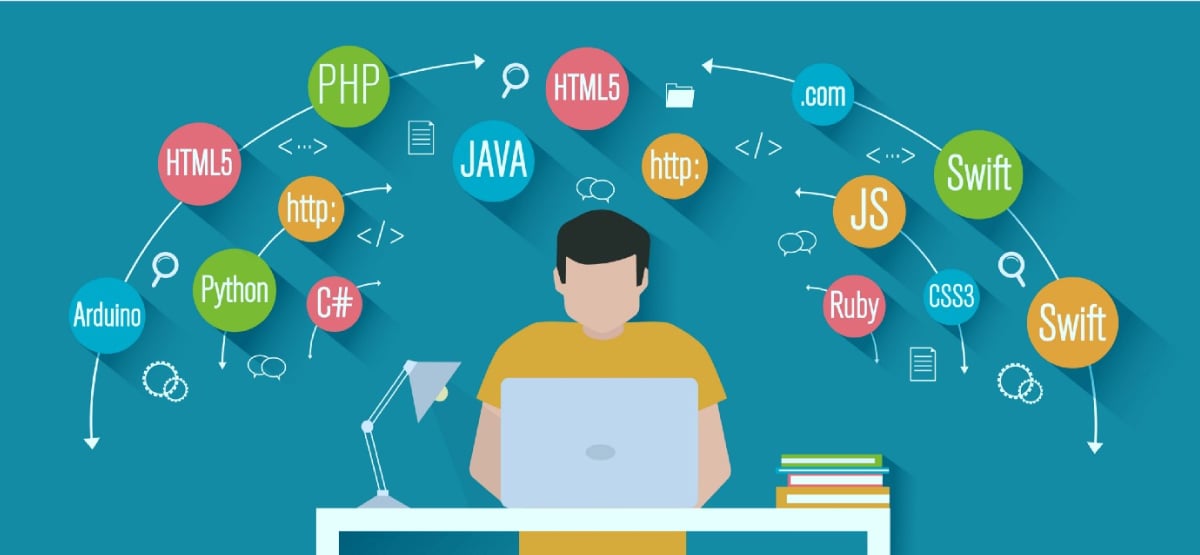
Professional coders must specialize in at least one coding language so they can write instructions a computer understands (machine code).
How Does This Skill Help?
The programming language you use depends on the type of role you’re in. For example, system programmers design system software for a computer’s operating system, such as macOS or Windows, so they use programming languages specific to those systems (eg: Swift for macOS, C++ for Windows). Front-end developers must be familiar with HTML, Java, and CSS.
Where To Start
Start by learning a versatile, multipurpose programming language and practicing writing basic code. Once you master the syntax (variables, operators, conditionals, loops) and basic concepts of one language, it is easier to learn another. Python is a high-level, general-purpose programming language used for a range of functions, from building websites and software to analyzing data and automating tasks.
Data Structures and Algorithms
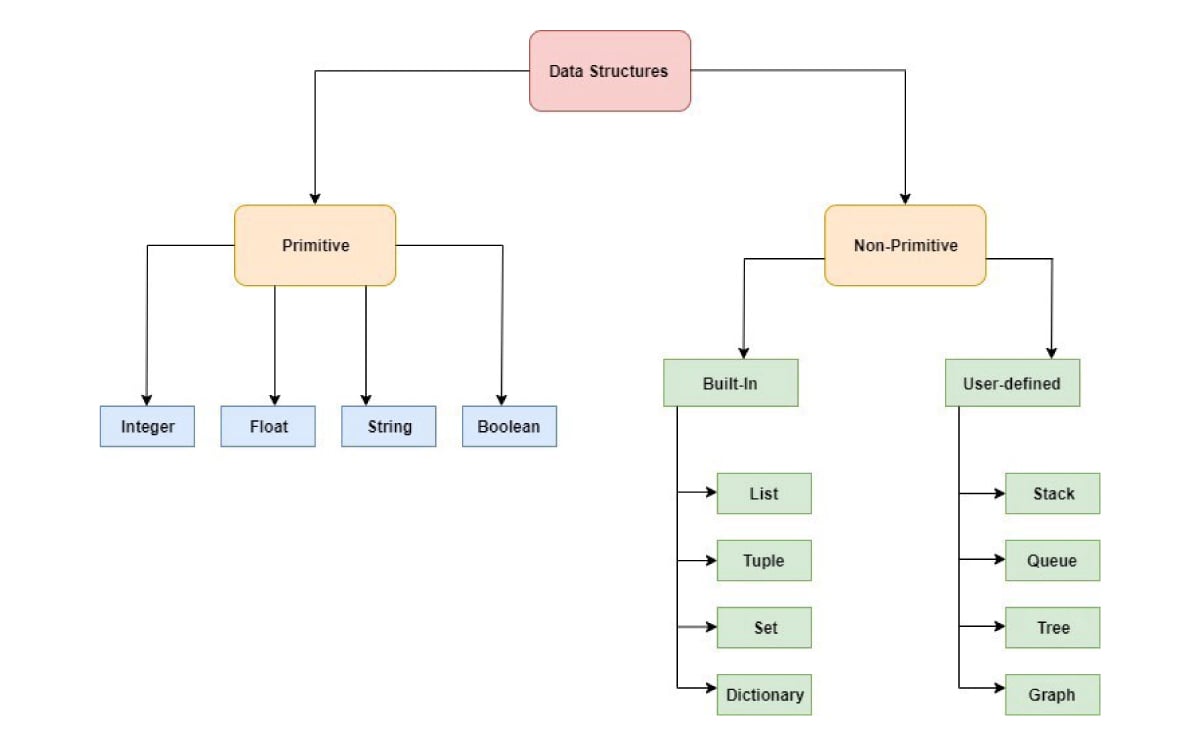
Data structures and algorithms render the most important function of a computer program: data structures let you store and organize data, while algorithms process the data in a meaningful way.
How Does This Skill Help?
Programmers spend most of their time considering the best way to approach a problem, including the best data structures and algorithms to employ. Most technical interviews lean heavily on questions about DS&A because they demonstrate a programmer’s foundational knowledge. Programmers must understand the tradeoffs between different data structures to write functional programs.
Where To Start
First, learn a programming language. This will allow you to implement your knowledge of data structures and algorithms. Make a list of the most important data structures and algorithms to learn. Familiarize yourself with the main types of data structures (i.e. array, string, matrix, linked list, stack, queue, tree, graph). Learn the most commonly used algorithms, including searching, sorting, hashing, recursion, prefix sum, and suffix sum. Next, find an online class that teaches you DSA in the programming language of your choice (see this course for Python, or this one for Javascript).
Text Editing Tools

A text editor is a specialized tool for writing software. It may be a standalone program or part of an integrated development environment (IDE).
How Does This Skill Help?
Text editors can be used to enter program language source statements or create documents such as technical manuals. You can use it to write and edit in programming and markup languages. Code editors identify various parts of a programming statement and differentiate them using different colors and font sizes.
Where To Start
Choose a text editor and experiment with it. The most popular editors are Sublime Text, Atom, Visual Studio Code, and Espresso (macOS only). Some text editors, like Microsoft’s Visual Studio, provide code snippets in different programming languages, which you can use to quickly generate commonly used code blocks. Others come with “autocomplete” capabilities that display suggestions as you write code. Practice key functions like increasing or decreasing a line indent, or commenting out code you don’t want to compile.
An Understanding of Databases
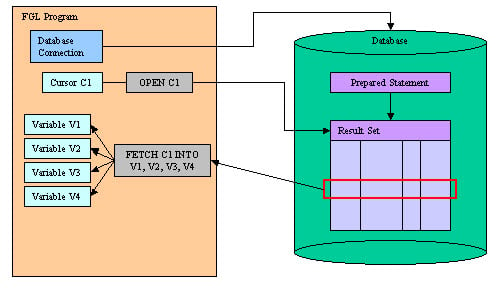
Source: 4Js
The majority of applications are designed to move data in and out of databases. Developers need a solid grasp of SQL, automated frameworks, performance, security, and more.
How Does This Skill Help?
Even if you don’t build databases yourself, you need a strong knowledge of SQL (at the very least, understand the differences between joins–outer, inner, left, right). Professional coders must know how to model data appropriately to handle scale, agility, and changes, and understand the characteristics of databases for different services. While front-end developers don’t need to build databases, having this knowledge will make you more well-rounded and employable.
Get To Know Other Software Engineering Students
Promise Morka
Software Engineer at AECOM
Dave McConeghy
Software Engineering Career Track Student at Springboard
Matthew Dillon
Front End Developer at LaunchBadge
Where To Start
Database essentials for developers include familiarity with SQL and basic knowledge of insert, select, update, and delete statements. Next, learn basic indexing strategies, data modeling, joins, constraints, and referential integrity. Choose a database management system you want to work with (eg: PostgreSQL or MySQL), so you can practice the SQL concepts you’ve learned. You can also take free introductory courses such as Introduction to Databases and SQL Querying (Udemy) or the SQL and Database Course by freeCodeCamp.
Knowledge of the Testing Process
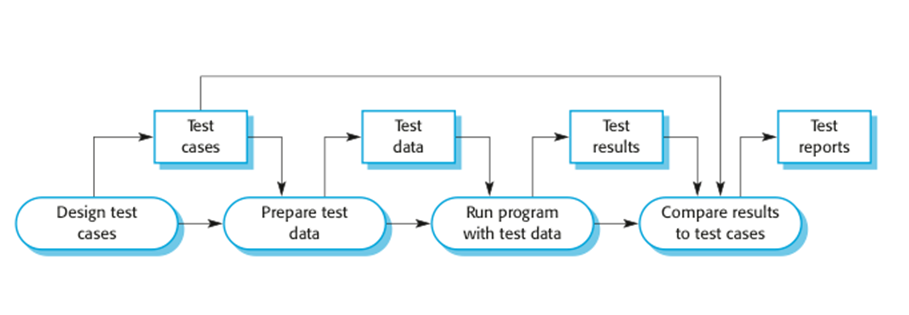
Testing is the process of verifying that a software application performs its intended function and meets business requirements.
How Does This Skill Help?
Organizations that use an iterative or agile approach to software development may require developers to produce automated, integrated, code-based tests. Writing tests saves time by decreasing release issues and downtime on production, and reduces the number of bugs customers encounter.
Where To Start
Have a thorough understanding of the software development life cycle and where testing fits in according to the Waterfall and Spiral model. Next, learn the main types of tests every developer should know, including manual and automated tests, testing methods, and testing levels. This software testing tutorial by Edureka is a one-hour introductory course on software testing fundamentals. If you want to go deeper, take this 10-hour course.
Logic

Program logic is the implementation of an application’s requirements and design. It’s how instructions in a program are arranged in a prescribed order to solve a problem.
How Does This Skill Help?
Programming logic explains how a software application works and is required for writing clean code. Developers must be able to manipulate logical expressions (eg: if…then, else, if…) reliably; otherwise, their code will be tainted with bugs. When writing code, you must choose the right logical operator to produce the desired result. Much of computer programming is based on formal logic, specifically mathematical logic.
eg: if A>B and B>C then A>B>C
Where To Start
Practicing abstract thinking is a great way to develop logic skills. Coding challenges are a great way to exercise logical thinking. Start coding from coding boards and participate in hackathons. Read code–inspect the code elements of a popular website after understanding the algorithm–this will improve your logic for programming. You can also practice logic questions from sites like HackerRank, HackerEarth, and code chef.
Cloud Computing
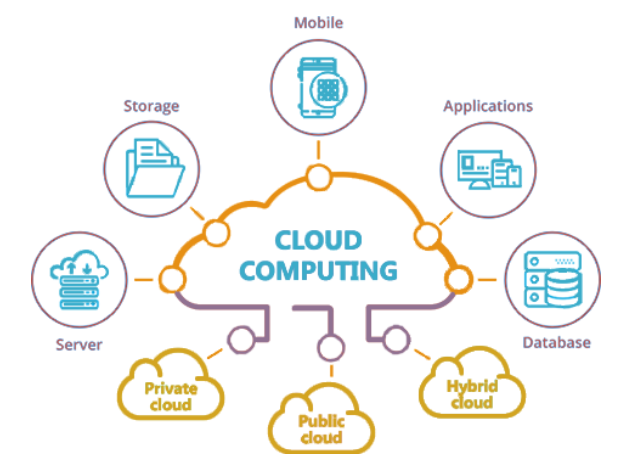
Source: Medium
Cloud computing uses a network of remote servers hosted on the internet to store, manage, and process data without the need for a local server or a personal computer.
How Does This Skill Help?
Today, a major part of software engineering is computing on the cloud, and more and more organizations are turning to serverless architecture because of its scalability and cost savings. Cloud computing services provide an unlimited amount of testing and staging servers. Devs who don’t use cloud systems can’t take advantage of servers that enhance speed, software testing, delivery, and productivity. Cloud computing also lets developers release new and higher-quality software more quickly.
Where To Start
To learn cloud computing, you need background knowledge of operating systems—how they work and operate at a high level—in addition to basic networking skills. Now you’re ready to learn the basics of cloud computing. Try this free certificate course on Cloud Foundations offered by Great Learning, where you’ll learn about cloud fundamentals, and service delivery/deployment models.
Soft Skills for Coders
While technical skills are essential for designing and implementing software, soft skills enable developers and engineers to flourish in their roles and differentiate themselves in the job market.
Problem-Solving
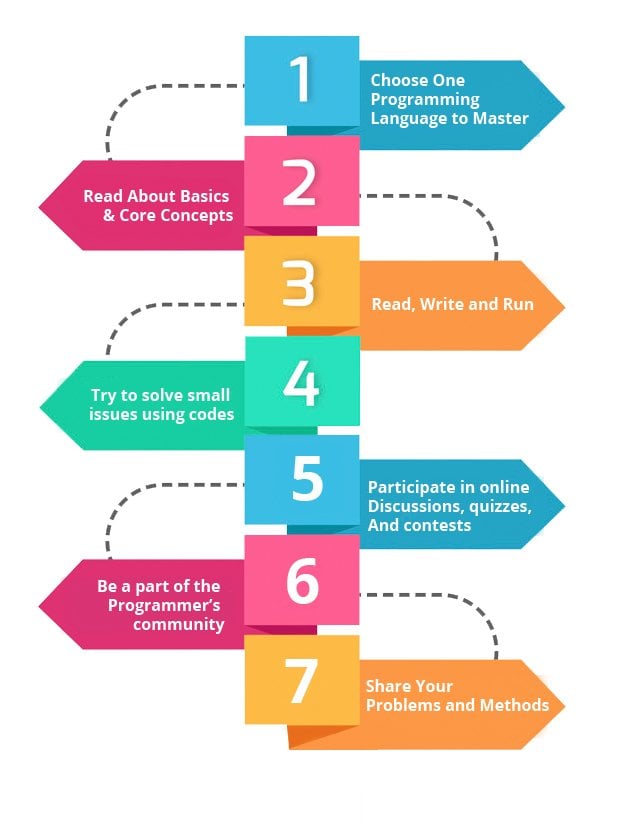
Source: JanBask Training
Problem-solving means considering a challenge from different perspectives and coming up with analytical conclusions.
How Does This Skill Help?
Software engineers are professional problem-solvers. Every company has a different tech stack. Developers must learn new programming languages, and frameworks constantly. Working with existing codebases is challenging because you need to find ways to add or modify code without breaking it. This means reading documentation, going through code reviews, finding workarounds, and fixing bugs.
Where To Start
The key to problem-solving is to think like a programmer. That means viewing a problem from multiple angles and finding workarounds when obstacles arise. The best way to practice innovative thinking is to work on personal projects that leverage your personal strengths while also stretching your abilities. Consider contributing to open-source projects on a developer community such as GitHub or Stack Overflow.
Flexibility and Adaptability
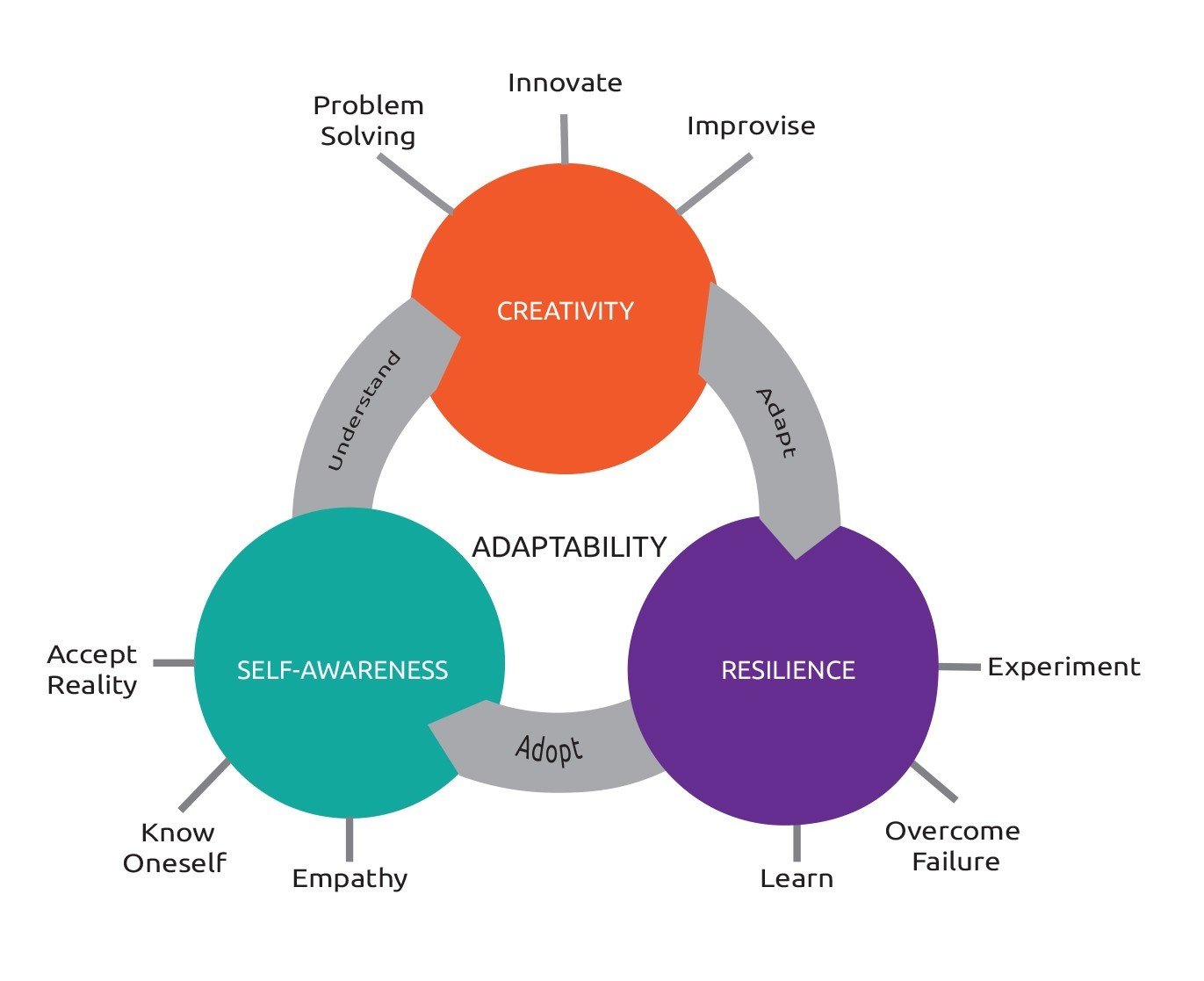
Source: Deepstash
Developers work in fast-paced environments and must be flexible to ever-changing project timelines and software requirements (known as “scope creep”), and the constant need to learn new technologies.
How Does This Skill Help?
Programming languages and frameworks come and go. Developers often find themselves having to rewrite code when managers change the scope of work. Developers must become accustomed to working in sprints–short bursts of intense work focused on one or two goals.
Where To Start
Learning more than one programming language makes you more flexible. Also, knowledge of programming back-end and front-end applications qualifies you for a wider range of roles and lets you take on more responsibilities in your current role. Developers who are familiar with AI and machine learning have a major advantage as AI-assisted programming grows more prevalent.
Practice time management and gain experience solving different types of problems through personal and professional projects.
Creativity and Curiosity
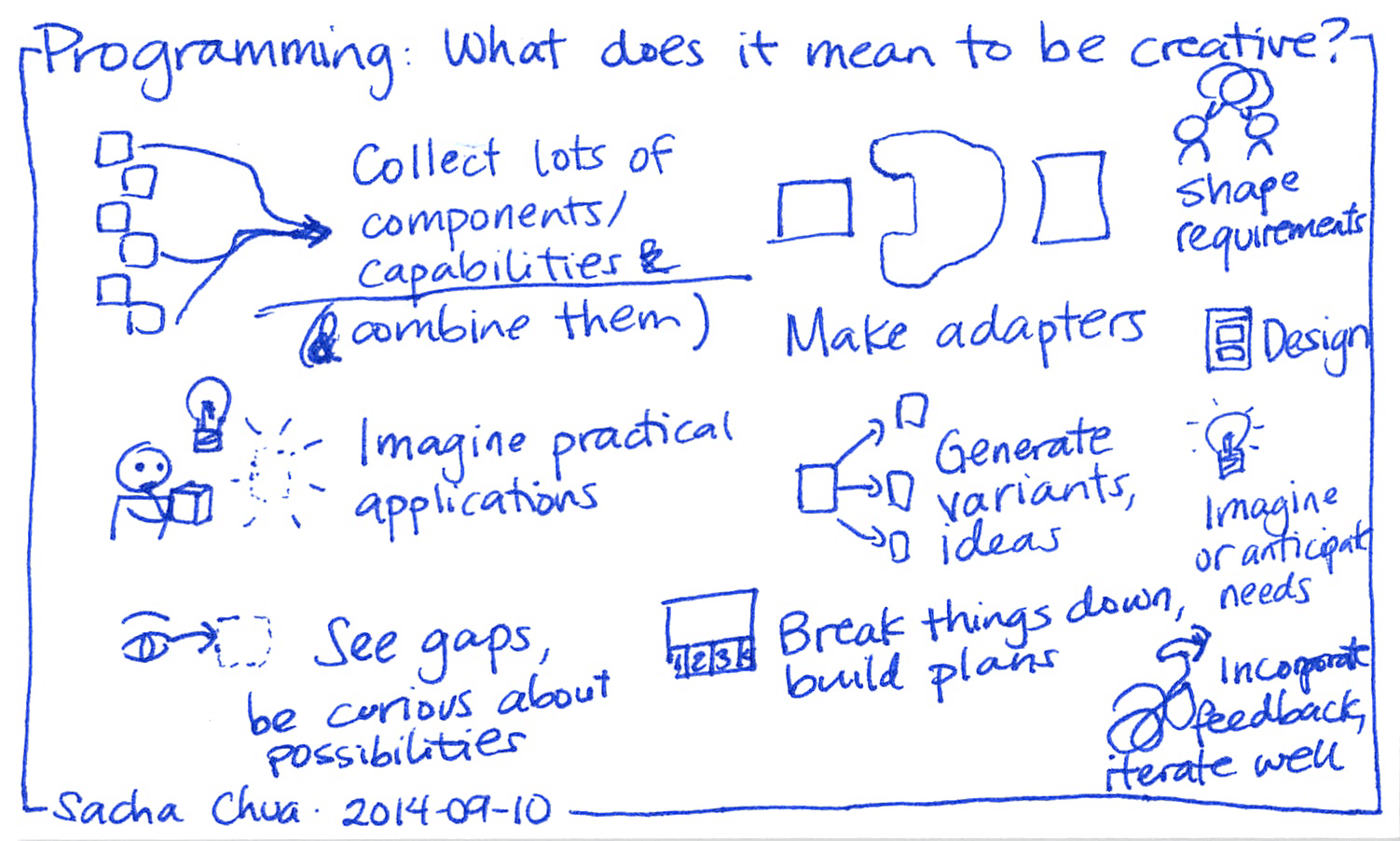
Creativity and curiosity empower developers to think outside the box and learn new things.
How Does This Skill Help?
Solving real-world problems and finding ways to automate your workflow requires creativity. It also helps you use innovative thinking to reconcile user demands with business requirements. Even experienced developers must remain curious because they must constantly learn new technologies.
Where To Start
Diversify your programming knowledge and toolkit. Only by having a repertoire of tools at your disposal can you come up with innovative solutions. Learn more about various programming paradigms (functional vs. object-oriented) and their respective principles and approaches. Work on side projects, contribute to open-source projects on GitHub, and participate in coding challenges. Engage in collaborative coding with another developer, if possible, to learn their thought processes.
Critical Thinking
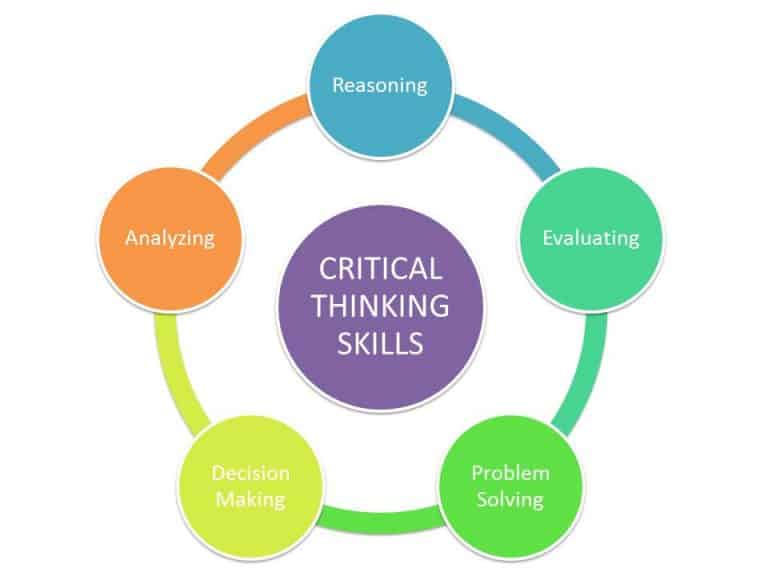
Source: Quanthub
Critical thinking is the process of using a methodical, objective approach to problem-solving by asking questions and uncovering false assumptions.
How Does This Skill Help?
Before writing code, programmers need to consider the pros and cons of various approaches, compare the tradeoffs between different data structures and algorithms, and understand business requirements. By having analytical skills, programmers avoid having to rework code due to logical errors or alter the scope of work to accommodate unexpected factors.
Where To Start
The best way to develop critical thinking skills is to apply methodical thinking to your coding tasks. Practice the following approach to problem-solving:
- Identify the problem
- Analyze the problem from various perspectives
- Develop a few potential solutions
- Decide which solution is the best fit
- Implement the solution
Self-Awareness
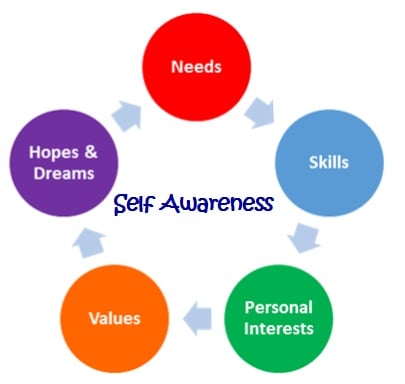
Source: Destiny’s Odyseey
Being able to critique your own work and understand your motivations for becoming a programmer are key to long-term success in the field.
How Does This Skill Help?
Successful coders must understand their strengths and weaknesses to continuously improve their technical and soft skills. During interviews, developers should also expect to field behavioral questions which test their self-awareness.
Where To Start
Ask for feedback from your peers, interviewers, and employers. Pay attention to what they say not just about your technical skills but your soft skills as well. Write down your strengths and weaknesses, and decide what areas need improvement.
Responsibility
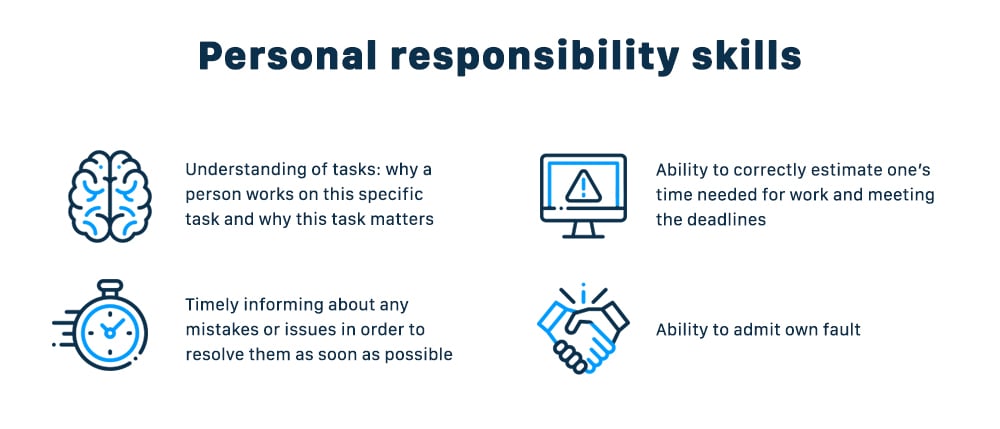
Software developers must have a strong sense of duty and work ethic.
How Does This Skill Help?
Taking responsibility for your work is important because in the event software requirements change (and they will!) or project deadlines are moved, you are willing to be flexible and do your part. Developers must also take responsibility for their own learning and development, and work under minimal supervision.
Where To Start
Think about a time when you took the lead on a project or took the initiative to suggest an innovative idea. Commit to being a self-starter and sharing ideas during stand-ups, so you aren’t just passively following instructions.
Teamwork
Application developers collaborate with project managers, engineers, designers, and other developers on a daily basis.
How Does This Skill Help?
Software development is a collaborative process. Companies won’t hire developers who don’t work well with others. Teamwork ensures communication between teams is seamless and projects are completed on time.
Where To Start
Look for an internship that allows you to work with other developers. You should also participate in hackathons or coding challenges and join a team of other programmers. You can also collaborate with another developer on pair programming (one person writes the code while the other dictates).
An Eye for Detail
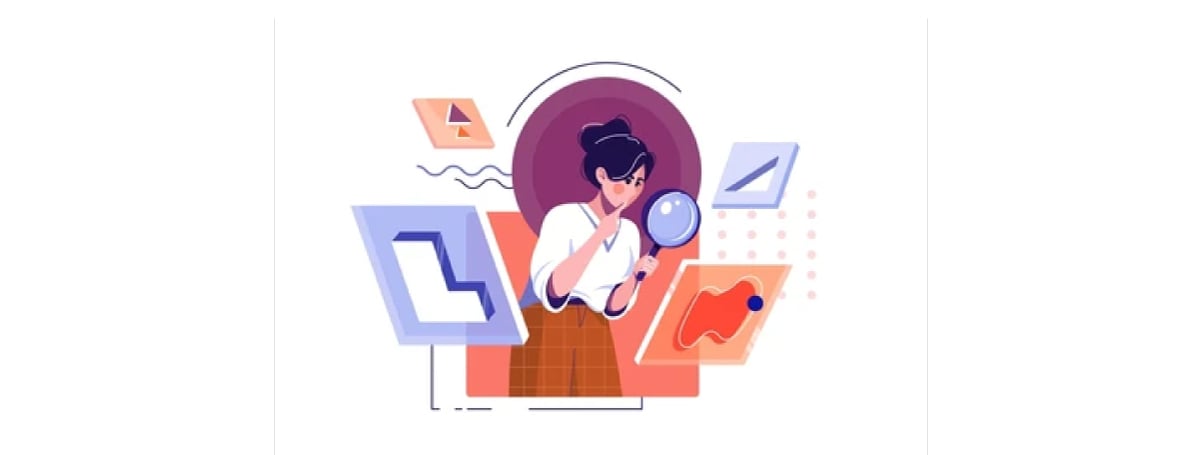
Attention to detail ensures better code quality, readability, and performance.
How Does This Skill Help?
Developers must consider many factors when writing code: the user experience, calls-to-action, and how the software solves a problem for the user. An eye for detail ensures none of these facets are overlooked.
Where To Start
Get as much experience as you can writing code. Read user documentation for open-source projects so you can understand the developer’s thought process and any trade-offs they may have made.
FAQs About Coding Skills
We’ve got the answers to your most frequently asked questions:
Can a Beginner Learn To Code?
Yes. Beginner coders can start by learning a markup language like HTML or CSS, which doesn’t use data structures and algorithms. Java and Python are also popular choices for beginners because they are general-purpose programming languages.
What Coding Language Should I Learn?
Learn a programming language that is widely used and versatile—meaning the general syntax can be applied to other languages, too. Examples include Python, C++, and Javascript.
How Can I Develop My Coding Skills?
You should get in the habit of writing code every day. Contribute to open-source projects, create your own personal projects, and participate in coding challenges or hackathons.
Since you’re here…
Were you one of the tens of thousands of workers impacted by this year’s tech layoffs? Springboard wants to help. Our new Career Reboot Scholarship is intended to assist job seekers from tech looking to upskill, reskill and stand out in a competitive hiring environment. Get $1,000 off any Springboard bootcamp in software engineering, data analytics, UX design, cybersecurity, tech sales, and more. Visit this page for eligibility requirements and to apply.






